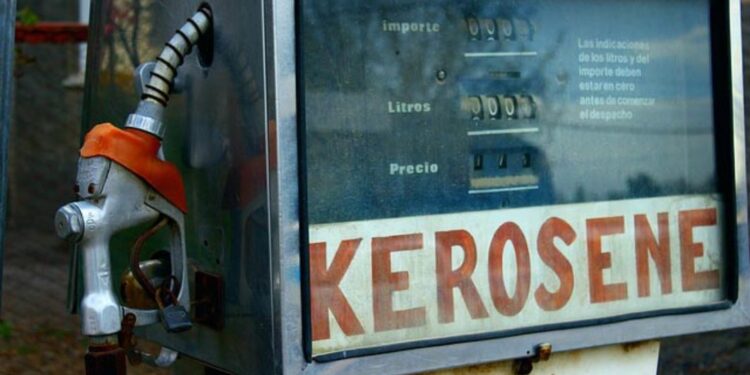In a recent report released by the National Bureau of Statistics (NBS), it has been revealed that household kerosene (HHK) prices in Nigeria surged by a staggering 57.18% in August, reaching an alarming rate of N1,272.40 per litre. This sharp increase compared to last year’s rate of N809.52 in August 2022 has caused concerns about escalating energy costs across the country.
The NBS’ National Household Kerosene Price Watch report, obtained by The PUNCH, highlighted a concerning month-on-month rise in kerosene prices, with the average cost per litre at N1,272.40, reflecting a 0.92% increase from July’s rate of N1,260.81.
A closer look at the data reveals significant pricing disparities across various states and regions in Nigeria. At the state level, Adamawa led the pack with HHK prices at N1,745.83 per litre, closely followed by Benue at N1,468.33 and Abuja at N1,486.89. In contrast, Jigawa offered a more affordable option at N1,000.00, followed by Edo at N1,104.78 and Kaduna at N1,121.79.
Regionally, the North-Eastern part of Nigeria faced the highest average price per litre at N1,370.64, with the South-East following closely at N1,332.49. Conversely, the North-Western region experienced relatively lower prices at N1,163.25.
When it comes to gallon prices, consumers encountered an average cost of N4,351.53, marking a 1.06% increase from July’s rate of N4,306.07. This also represents a significant 47.63% rise from the N2,947.65 recorded in August 2022.
Lagos emerged as the state with the highest HHK prices, with a staggering rate of N5,350.83 per gallon, followed closely by Katsina at N4,991.85 and Borno at N4,897.47. On the other hand, Delta provided some relief, pricing HHK at N2,945.71 per gallon, followed by Rivers and Oyo at N3,287.50 and N3,711.79, respectively.
Regional disparities in gallon prices were also evident, with the North-Eastern region experiencing the highest average at N4,637.71, closely followed by the South-East at N4,590.69. In contrast, the South-South region offered a more affordable option at N3,727.30.
These substantial increases in household kerosene prices are likely to have a significant impact on the cost of living for many Nigerians. As energy costs continue to rise, consumers and policymakers will need to find ways to mitigate the financial burden placed on households.









